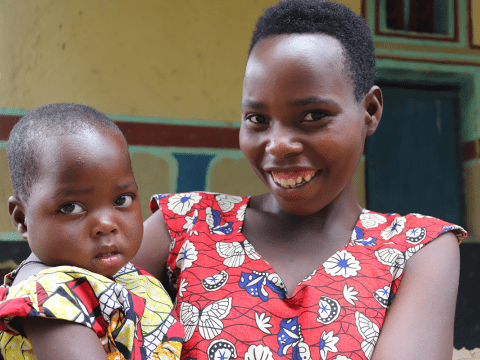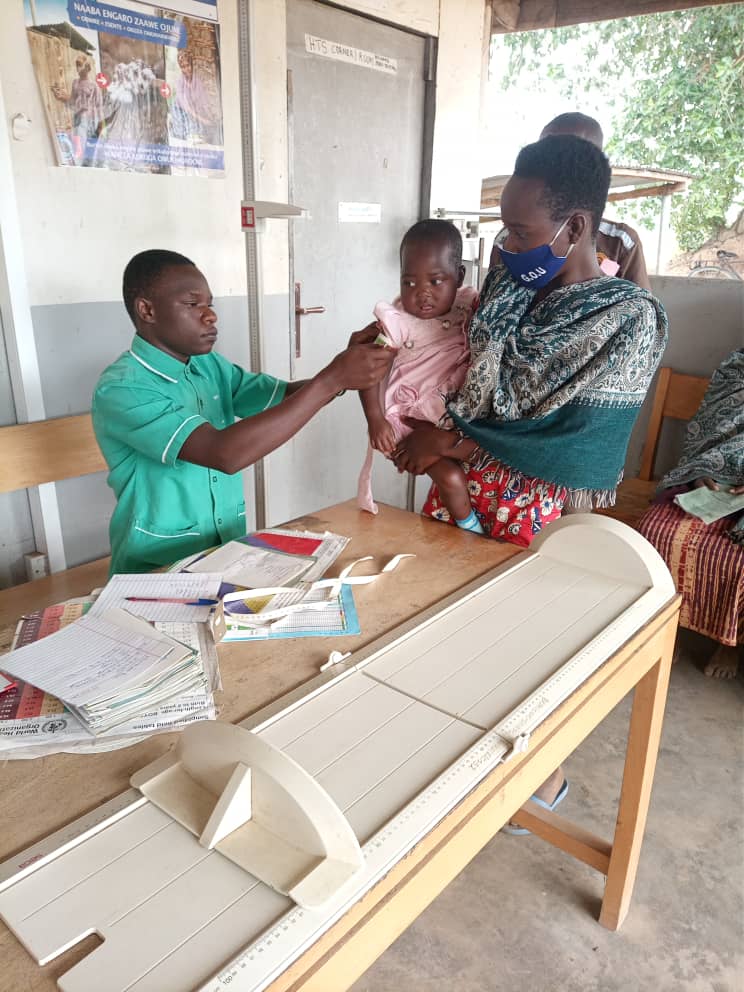Baby Scovia defeats malnutrition

Scovia was a jolly girl and the centre of happiness for her family, being the first child. Removing her from breast milk marked the beginning of her unhappy life. Her parents, being a young couple, could not figure out what the problem was.
“I conceived while still breastfeeding,” says 24-year-old Sophia Tindiweji, Scovia's mother. “I didn’t have any other choice but to stop Scovia from breastfeeding. She was only eight months old by the time I got the second child.”
Sophia tried taking Scovia to the nearest clinic where she was given some medication. But her health did not improve. "She couldn't play or laugh like she used to. Her constant smiles and laugher would lighten up our house but were no more. Her skin was pale. Her eyes had sunk. Her hair had turned brown. And her body was swollen,” says Sophia with grief in her voice.
Scovia’s favourite meal was mashed Irish potatoes but she had lost appetite. She could not eat any food. Her condition worried her parents but they kept their hopes alive. "We stayed strong hoping that she would get better one day," says Sophia.
One day, at dusk, a Village Health Team (VHT) coordinator paid the family a visit. He found Scovia seated on her mother’s lap, covered with a piece of cloth that was shielding her from the cold. "Patrick informed us of the health assessment that was being conducted on children in our community and advised us to participate,” Sophia recalls.
Patrick is among 78 VHTs trained by World Vision to assess children for malnutrition. Scovia, then 18 months old, was among children assessed and found severely malnourished. "We were referred to Rukunyu Hospital to receive medical attention," says Sophia. At the health facility, Scovia was attended to and her mother educated on appropriate feeding.
Situation before
Omwibale, one of the parishes where World Vision has operations, was hard-hit by malnutrition among children under five. Most challenging, mothers like Sophia did not believe that their children were malnourished. Instead, they blamed their children's misery on witchcraft. "Many families resorted to alternative medicine, including local herb concoctions for treatment but nothing was changing," says Patrick. "Children continued to waste away. Stunted children with low weight were commonplace and so were deaths and morbidity."
In 2018, for example, Rukunyu Hospital received an average of 29 acutely malnourished children per month. That number began to reduce the following year, thanks to the work of VHTs in reaching out to communities to identify, screen, and refer cases. They also shared health and nutrition information with expectant and breastfeeding mothers. Now, on average the hospital receives 15 moderately malnourished children per month.

World Vision’s effort yields results
Equipped with knowledge and skills, caregivers like Sophia now are in a better position to provide appropriate feeding for their children to avoid malnutrition.
"I'm well equipped, thanks to World Vision," says Sophia. "Ekitobero (a mixture of foods prepared together) has saved our children from stunting and even death. After training on how to prepare nutritious food using locally available foods, I feel I have a duty of care to protect not only my children but all children in my community. In fact, it should be a duty of all parents and caregivers to say never to malnutrition."
Scovia’s life has greatly improved. Her appetite is back; she is strong and healthy. The bright smile is back and her family is laughing again!
---
By Sophia Aloikin, Donor Liaison, World Vision Uganda